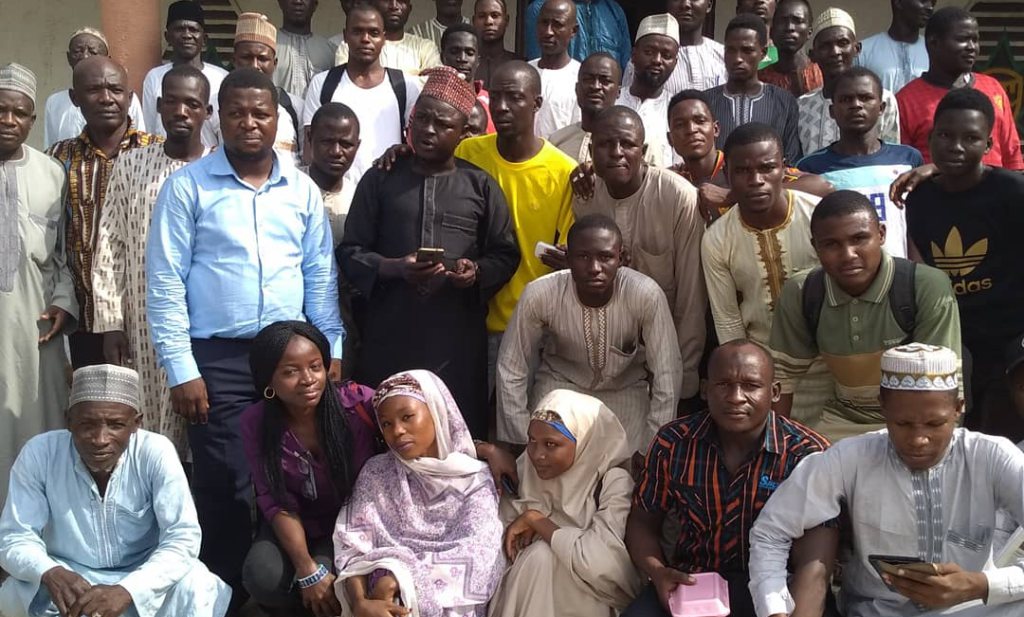Smallholder farming is characterized by a small scale of production especially in terms of land usage, often less than 10 hectares (ha) for farming activities, purpose of production - which is for both personal and commercial reasons. Also, the capital required for expansion is most times unavailable, and thus continues to produce on a small scale and it could become smaller in cases of external shocks such as the climate change crisis.
Since their commercial activities are very limited, financial institutions always perceive them as having less or no commercial value and classify them as high-risk actors.
Besides, it is important to note that smallholder farmers operate about 80% of farmland in the developing countries (according to FAO) and hardly add value to their produce. Thus, they get less value from their produce as they are sold as raw materials or produce. Furthermore, many of them are unbankable - no financial records, no credit points, nothing to show their financial strength.
Over the years, the structure of the financial institutions does not support the rural system, where the majority of the smallholder farmers reside. For instance, many smallholder farmers do not have land titles, therefore the land doesn't qualify as an asset for collateral. Indirectly, they have been financially excluded. However, things are gradually taking shape now as many financial products and services are being designed for smallholder farmers through interventions from various National and International organizations. However, this opportunity is still limited.
Therefore, there is a need to mobilize more investment to the agricultural sector in developing countries, to provide support for smallholder farmers, specifically with respect to their production costs and expansion plan. Also, to reduce the risk level of financial institutions in providing financial products and services to the farmers so that smallholder farmers become attractive to financial institutions. Furthermore, smallholder farmers need to be sensitized on the importance of savings, insurance and credit facility and being able to be bankable and having relevant financial footprints.
In conclusion, through the introduction of various agents at the village level to cater for the financial needs and provide financial products and services, many smallholder farmers are more financially included. However, more needs to be done in ensuring that farmers can easily access the financial support for business expansion with the appropriate interest rate that aligns with their business reality and adaptive repayment plan. There is a need to help farmers grow intentionally so that food security becomes an intentional reality.
Yours-in-Service
Babatunde
Besides, it is important to note that smallholder farmers operate about 80% of farmland in the developing countries (according to FAO) and hardly add value to their produce. Thus, they get less value from their produce as they are sold as raw materials or produce. Furthermore, many of them are unbankable - no financial records, no credit points, nothing to show their financial strength.
Over the years, the structure of the financial institutions does not support the rural system, where the majority of the smallholder farmers reside. For instance, many smallholder farmers do not have land titles, therefore the land doesn't qualify as an asset for collateral. Indirectly, they have been financially excluded. However, things are gradually taking shape now as many financial products and services are being designed for smallholder farmers through interventions from various National and International organizations. However, this opportunity is still limited.
Therefore, there is a need to mobilize more investment to the agricultural sector in developing countries, to provide support for smallholder farmers, specifically with respect to their production costs and expansion plan. Also, to reduce the risk level of financial institutions in providing financial products and services to the farmers so that smallholder farmers become attractive to financial institutions. Furthermore, smallholder farmers need to be sensitized on the importance of savings, insurance and credit facility and being able to be bankable and having relevant financial footprints.
In conclusion, through the introduction of various agents at the village level to cater for the financial needs and provide financial products and services, many smallholder farmers are more financially included. However, more needs to be done in ensuring that farmers can easily access the financial support for business expansion with the appropriate interest rate that aligns with their business reality and adaptive repayment plan. There is a need to help farmers grow intentionally so that food security becomes an intentional reality.
Yours-in-Service
Babatunde
Related



